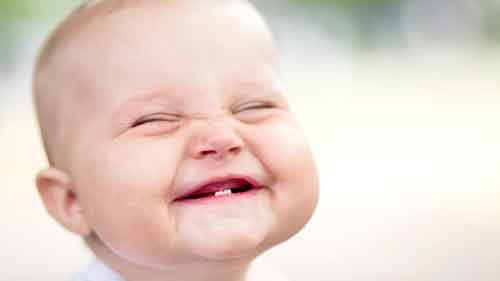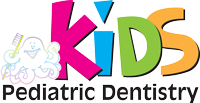
14 Sep 4 things you should know about Baby Teeth
Typically, baby’s teeth will begin to come in around 6 months of age. Sometimes also called primary teeth, the initial baby’s teeth help the mouth get ready for kid’s permanent teeth. Primary teeth are great not just for cute baby smiles, but they also have other vital functions. It depends on the child, but generally the baby teeth will continue to grow into their second year.
Baby teeth – Some essential items to know
As a parent, there are so many things to keep track of just in a given day. Kids Pediatric Dentistry has compiled 4 vital things to know about you kids baby teeth
- Baby Teeth lead the way for Adult Teeth: It varies between a year and a half; the baby teeth will eventually fall out. The primary teeth serve valuable purpose in the dental development of a child. As the baby teeth come and fall off, the face gets its shape and the dental jaw begin to form. If a baby tooth is lost or broken prematurely, it could lead to irregular tooth placements, and cause other severe dental issues. Baby teeth help guide the permanent teeth. They act as placeholders until the secondary teeth are ready to break out. If a baby tooth is lost too soon, the permanent teeth may erupt in the wrong spot. So, it is necessary to visit Dr Alina, Pediatric Dentist in Allen to help your child’s teeth grow in the appropriate position.
- They Help Children Learn to Talk: The baby teeth are necessary for your child to learn to speak. When primary teeth are solid, healthy, and aligned, your child is better able to speak clearly. Children learn to speak by imitating the sounds from adults. Teeth help with the sound that they make. Sounds such as ‘m’ and ‘b’, are made in the back of the mouth. Children with teeth make the same sounds, but they use their teeth instead of the tongue to help them make the sounds. Since children have to learn to use their tongues and lips to make certain sounds, they will not speak as well as children who have their teeth.
- Baby Teeth erupt and are prone to dental issues: The tooth decay can start so it’s important to brush baby teeth with a bit of fluoride toothpaste. These primary baby teeth will then begin falling out and be replaced with natural stable teeth around age 5 and can continue into young adulthood. Children, especially littles ones love sugary foods such as toffees, candies and cakes. This generates bacteria which then causes teeth enamel to erode. Brushing helps to reduce tooth decay and other gum diseases in children.
- How many Baby Teeth do kids have? Babies are born with generally 20 baby teeth. The first ones to start are usually the central ones which are the front two teeth. From there, the mouth fills from the front towards the back. Just after a year of age to age two, or even longer for some kids, first and second molars will begin to come in. It’s suggested to have your child see the dentist within 6 months of your child’s first tooth eruption, or at age 1, whichever comes first.
- https://www.kidspediatricdentistry.com/losing-baby-teeth-in-a-healthy-way/
- https://www.childdentalclinic.com/2022/09/06/5-things-to-know-about-baby-teeth/
- https://www.naturalsmilesdc.com/blog/5-things-to-know-about-baby-teeth/
Make sure to visit a pediatric dentist with your child. Your dentist will help identify any issues with your child’s teeth and resolve them early on. Always see your dentist if your baby has a mouth or tooth injury or other concern.
